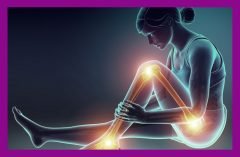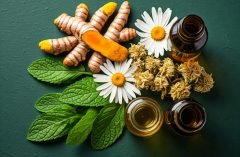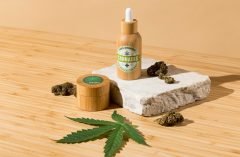Table of Contents [show]
How Much CBD may be beneficial for certain conditions? It is dependent on factors such as dose and product quality.
The cannabis plant contains more than 60 active chemicals, including CBD. It is used to treat epilepsy, but researchers are now looking at whether it can control and cure other disorders, such as anxiety, schizophrenia, diabetes, Parkinson’s, and multiple sclerosis.
How much CBD should you take for these or any other health issues? Since the FDA does not regulate CBD, there are no formal dose instructions for the product.
As a result, early research shows that specific ailments and populations can benefit from varying doses of CBD. Therefore, CBD’s dose and effects have been studied constantly by researchers.
What Is CBD?
Cannabidiol, or CBD, is a cannabinoid found in marijuana or cannabis. Second only to delta-9-tetrahydrocannabinol or THC, CBD is the most common component in marijuana. THC and CBD are only two of the 60 cannabinoid compounds found in marijuana with approximately 400 different active ingredients.
Hemp or cannabis may be used to produce cannabidiol oil. However, the hallucinogenic ingredient THC is present only in tiny levels in cannabidiol generated from marijuana plants.
Types of Cannabidiol
Numerous items contain CBD, which can be obtained via various methods. CBD is available in three primary forms:
Full-spectrum
This signifies that the product includes other cannabinoids, such as THC, in various concentrations.
Broad-spectrum
THC is absent from this variety, which includes various other cannabinoids.
Isolate
Cannabidiol is the only cannabinoid found in this strain.
CBD can be found in various consumables, including oils, sprays, capsules, lotions, sweets, tinctures, gummies, and drinks. It can be taken orally, applied to the skin, ingested, or breathed.
As a result of the entourage effect, some studies show that full-spectrum cannabidiol products can be helpful. Effectiveness is increased when CBD and THC are taken simultaneously.
Entourage Effect
If the entourage effect idea is correct, it might significantly impact how you take CBD in the future. According to this belief, CBD is more potent when taken with other cannabinoids. In the case of conventional CBD oil, you are getting the chemical in an isolated state with no additional cannabinoids present. A full-spectrum CBD product includes all of the naturally occurring cannabinoids found in the cannabis plant, as well as trace levels of the psychoactive ingredient THC.
Types of CBD Consumables
You can choose how to ingest CBD, as several methods are available.
Smoking
The fastest method to absorb CBD into your circulation is by inhalation. For those who live in a state that allows the use of recreational marijuana or has CBD-only dispensaries, you may be able to obtain CBD “bud” or “flower.”
Vaping
Fast-acting CBD vapes are also a viable option for those not fans of smoking. Purchasing e-cigarettes from a licensed dispensary is recommended.
Tinctures and oils
It is a common misconception that oils and tinctures are interchangeable. For example, a weedy flavor and a higher concentration of CBD can be found in oils.
The less intense and more pleasant-tasting option is a tincture, a solution based on alcohol. They can be used in combination with other herbs and spices.
Sublingual absorption is the mechanism used by both products. For example, CBD can pass through the membranes in your mouth if you hold the beverage under your tongue before swallowing. As a result, it is absorbed into your system more rapidly.
EDIBLES, CANDIES, AND DRINKS
CBD pills, CBD edibles, and CBD-infused beverages (like Cloud Water products and CBD coffee) all have a similar effect on the body. Within 30 minutes to two hours of swallowing them, your body begins absorbing them.
Creams, lotions, bath bombs, and lube
CBD creams, ointments, and lotions fall under topical CBD. On the other hand, transdermal patches can provide a greater long-term alleviation of pain and inflammation.
Infusing a bath with CBD-infused bath bombs has become an increasingly popular fad, with many satisfied bathers reporting that the experience induces profound, full-body relaxation. Even CBD lubes on the market claim to aid pain relief and mood elevation.
General Dosage Guidelines – How Much CBD?
The following are some of the most important aspects to keep in mind while deciding on a CBD dosage:
- Metabolism
- Body mass index
- The severity of your anxiety
- CBD concentration
The milligrams (mg) per bottle quantity of CBD varies depending on the product.
Let us say you have tested the CBD stuff you have and found it compelling. You can also use a dosage meter to assist you in figuring out the right dosage in this situation. A milligram suggestion will be made based on your weight and the severity of your symptoms.
In addition, the way you respond to CBD is influenced by your body’s chemistry. For example, some persons can be genetically predisposed to metabolizing drugs more rapidly than others. Therefore, higher dosages are beneficial for those conscious that they metabolize medications quickly.
At different levels, CBD can have both positive and negative effects. For example, when the body’s endocannabinoid system is overstimulated, symptoms might worsen rather than improve.
That being said, you should always consult physicians before taking a dosage of CBD.
How to Calculate the Dosage
A serving size is indicated on certain CBD products such as candies, capsules, or tablets. For example, it is common for CBD capsule packaging to mention that each contains 5 milligrams of CBD.
For CBD oil, dropper bottles are the most common form of packaging. The amount of CBD in a single drop can be specified on the container. You will determine how many drips you need to utilize from there.
The label states the overall quantity of CBD in the whole bottle but not the amount in a single drop. It might be challenging to determine how much CBD is in a single drop. However, the volume of a single drop is around 0.05 milliliters (mL).
To put it another way, a 10-ounce (250mL) bottle of CBD oil has 200 drops. Each drop will contain roughly 5 mg of CBD if the 10-mL bottle’s label claims it has 1,000 mg of CBD. So four drops of CBD oil is all it takes to get 20 milligrams of CBD.
CBD Dosages – How Much CBD?
Some dosages that have been used in research studies for different conditions include:
- Anxiety: 300 to 600 mg
- Bowel disease: 10 mg per day
- Cancer-related pain: 50 to 600 mg per day
- Insomnia: 25 mg per day
- Parkinson’s disease: 75 to 300 mg per day
- Psychosis: 600 mg per day
Is CBD Legal?
It is easy to get CBD in most regions of the United States, although its legal status has fluctuated. CBD is legal in all 50 states, with varying degrees of limitation, under various state laws.
The FDA loosened its regulations so that researchers could begin CBD experiments.
Keeping CBD illegal would be like allowing oranges to be sold but forbidding the sale of orange juice after the 2018 Farm Bill made hemp legal in the US.
If your goods contain less than 0.3 percent THC, they can be sold in the United States and 1mg in the United Kingdom under federal law. If you need bulk quantity for yourself or for selling purposes, there are options to get wholesale CBD products of premium quality in this regard.
Is CBD Safe?
Nausea, tiredness, and irritability are some of the side effects of CBD. However, this means that CBD can boost blood thinning and other medications in your system since it competes with the liver enzymes that break down these substances.
High doses of CBD can cause abnormalities in liver blood tests in certain users. Unfortunately, several over-the-counter medications also affect this, such as acetaminophen (Tylenol). So, if you are a frequent user of CBD, you should tell your doctor.
CBD raises several questions about its safety as a supplement rather than a prescription. Unfortunately, at this time, the FDA does not have any authority to oversee the quality and safety of nutritional supplements.
Consequently, you cannot ensure that the product you purchase contains active chemicals at the stated dosage. Also, there can be additional unknown components in the product. We also do not know how much CBD is needed to treat a specific medical issue. Also, there are CBD products that are beneficial for your pets.
Is CBD an Addictive Drug?
CBD is classified initially as a Schedule I drug by the DEA, implying that it has a significant potential for misuse and addiction. As a result, Epidiolex, used to treat seizures associated with Dravet syndrome and Lennox-Gastaut, was reclassified as a Schedule V medication by the Food and Drug Administration in 2018.
The World Health Organization conducted a poll in 2017 that found that CBD is not addictive. In any case, it is vital to bear in mind that the number of human studies that have been conducted too far is relatively small. Therefore, a more thorough investigation is required before a conclusion can be reached.
Conclusion
The FDA has investigated some CBD producers for making outrageous claims like CBD cures cancer or COVID-19, which is untrue. More study is needed, but CBD can be a safe option even for beginners for treating anxiety, insomnia, and chronic pain. We cannot define adequate amounts without enough high-quality human trials. CBD is often sold as an unregulated supplement, making it difficult to know what you receive precisely.




